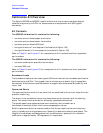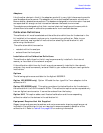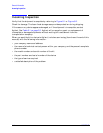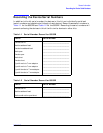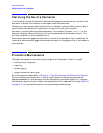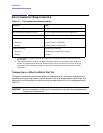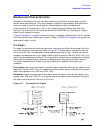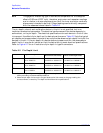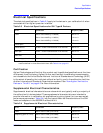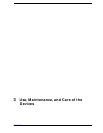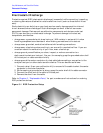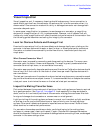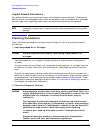
85032B/E 2-3
Specifications
Mechanical Characteristics
Mechanical Characteristics
Mechanical characteristics such as center conductor protrusion and pin depth are not
performance specifications. They are, however, important supplemental characteristics
related to electrical performance. Agilent Technologies verifies the mechanical
characteristics of the devices in this kit with special gaging processes and electrical
testing. This ensures that the device connectors do not exhibit any improper pin depth
when the kit leaves the factory.
“Gaging Connectors” on page 3-6 explains how to use gages to determine if the kit devices
have maintained their mechanical integrity. (Refer to Table 2-2 on page 2-4 for typical and
observed pin depth limits.)
Pin Depth
Pin depth is the distance the center conductor mating plane differs from being flush with
the outer conductor mating plane. Refer to Figure 2-1. Some coaxial connectors, such as
2.4 mm and 3.5 mm, are designed to have these planes nearly flush. Type-N connectors,
however, are designed with a pin depth offset of approximately 5.26 mm (0.207 inch), not
permitting these planes to be flush. The male center conductors are recessed by the offset
value while the female center conductors compensate by protruding the same amount.
This offset necessitates the redefining of pin depth with regard to protrusion and
recession.
Protrusion refers to a male type-N connector center conductor having a pin depth value
less than 5.26 mm (0.207 inch), or a female type-N connector center conductor having a pin
depth value greater than 5.26 mm (0.207 inch).
Recession refers to a male type-N connector center conductor having a pin depth value
greater than 5.26 mm (0.207 in), or a female type-N connector center conductor having a
pin depth value less than 5.26 mm (0.207 inch).
Figure 2-1 Connector Pin Depth




